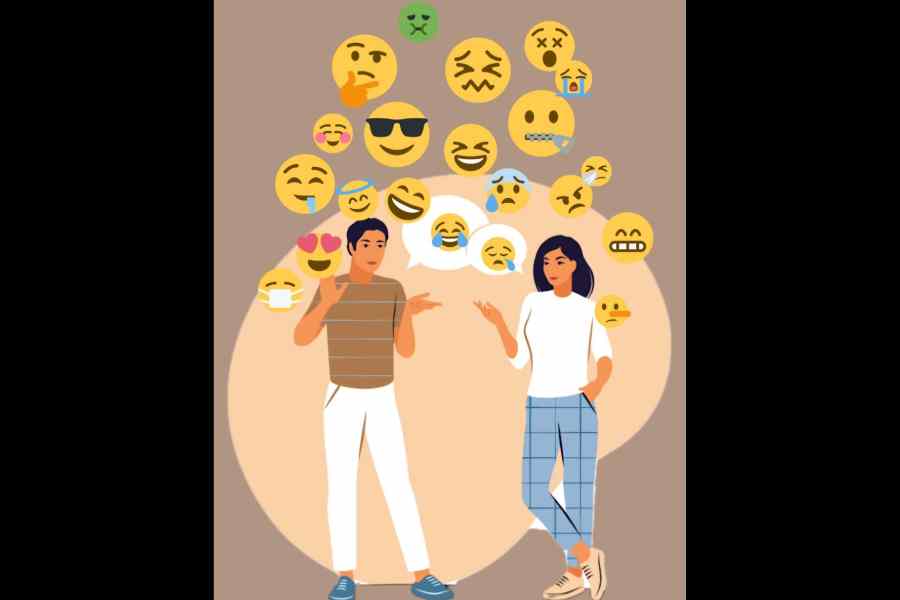In the novel, Dog Years, by the German novelist and Nobel laureate, Günter Grass, the protagonist asks a person how he is. That person shows a thumbs up in return and says nothing. “I asked, how are you?” the slightly annoyed protagonist asks. “Didn’t I tell you by showing the sign of thumbs up?” the person replies. “You did, but I expected an answer, not a sign. You’re not a caveman unless you consider yourself to be one,” replied the protagonist.
Dog Years was published in Germany in 1963. That exasperating sign language used by one of the characters has now become a new-age language called 'emojis'. Social media platforms are full of emojis of every conceivable type and hue. They have become substitutes for words. Neuro-linguists as well as sociolinguists are of the view that the rampant use of emojis in place of words is robbing humans of their innate and intrinsic emotions.
Mind you, humans are communicating. In fact, we're communicating much more than we used to even a decade ago. But much of these resurgent communications and increased connections are often wordless. Why are people, especially youngsters, increasingly resistant towards expressing themselves in any language? The fall in the use of words is impacting our linguistic skills.
The Italian novelist, Umberto Eco, also the father of semiotics, the science of signs and symbols, believed that despite our linguistic advancement, the majority of humans are still not linguistically inclined or interested. To them, words pose a serious challenge because they’re not very sure whether the words they’re using are correct or not. To avoid the confusion and the dilemma, the average human brain suggests an ‘inferior’ or ‘simpler’ alternative in the form of signs and symbols.
The new-age signs and symbols are emojis. Cultures resort to their use since emojis are a simple medium of communication and much less intricate. This may be an interesting observation but the ascendance of emojis in lieu of words is a worrisome development suggestive of the fact that most humans are no longer eager to develop their linguistic skills. Nor are they keen on using their brains to the optimum. Is the human race then heading towards a permanent atrophy of mental faculties?
The use of language is not synonymous with volubility. Even the bare minimum use of words can serve as an effective mode of communication, digitally or otherwise. It can also be argued that the use of emojis reeks of flippancy and reflects a casual attitude on the part of the user. Moreover, emojis can also lead to confusion because such signs are not always interpreted uniformly by senders and their recipients. This leads to considerable misunderstanding and, consequently, anxiety.
To put things in a nutshell, humans are better off using words rather than signs. After all, the human race is different from other species on three major counts: consciousness, intellect and language. One doesn't have to be a William Shakespeare or a wordsmith. But the use of language, when it's required, is a must. Words are the sinews of our intellectual and existential presence and strength. There is no need for us to go back to the era of our ancestors who had used only signs and gestures to communicate.










